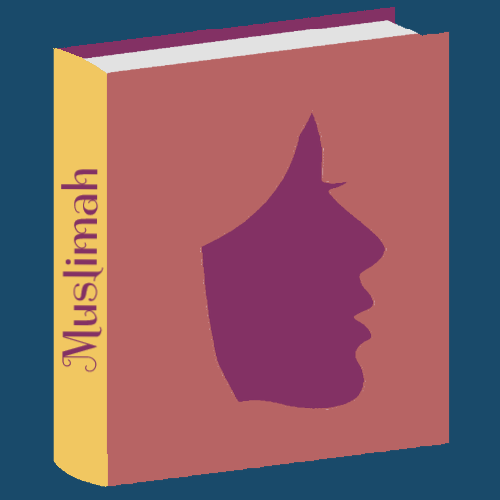
Yearning For Home — Helen Ala Rashi
—by Nasreen Nasreen“My children were stateless. The world does not recognize Palestine as a country, and that meant my children, who were Palestinian, did not have a place to call home. They did not have the same rights as everyone else. Every parent wishes for a better future for their children, and I was the same. I had to do what was best for my family — move to a safe place where we were treated equally.”
Born and brought up in Damascus, Syria, Helen Ala Rashi was raised in a traditional family. Her mother was highly educated and ensured her children were well educated. As Syria is home to thousands of refugees, Helen describes Syria as a diverse country. “I come from a mixed family. My father's side was different from that of my mother's. And I had long witnessed the conflict between them because of their ethnic and cultural differences.”
So, when Helen decided to marry her then-husband, her family was not on board. “He was a Palestinian living in Syria as a refugee, and my family knew the hardships we would have to face in the future,” shared Helen as she recalled some of the heated conversations she had with her family.
Employed by the United Nations, Helen worked as a teacher and a family support worker for refugee children in Syria. She had graduated from the teachers’ college in 1985, and pursued a diploma in working with children with special needs. She was content with her career and work life. Her personal life however, not so much.
After getting married and having two sons, reality sunk in. Helen's husband and children were stateless as Palestinian refugees. Palestine is not recognized as a state by most countries. There was also a strong bias against Palestinian refugees. Every time she would travel to a different country for work, her husband and children were not allowed to travel. Being Palestinian meant they did not have a passport and could not apply for visas. Helen's children did not have the same rights as Syrian citizens. And of course, she also wanted her children to have a career. Having watched her husband struggle to find work because of his Palestinian identity, Helen did not want her children to go through the same.
The hardships the family suffered because of her husband's refugee status forced them to look for other options. They decided to search for a country that would recognize them as its citizens and give them the same rights as everyone else. So, they decided to move to Canada and apply for citizenship, then move back Syria.
However, things did not go as planned. Although the family wanted to move back to Syria as Canadian citizens, Syria suddenly fell into political turmoil. Therefore, they made the decision to stay in Canada and make it their home.
“When I came to Canada in 2003, I noticed Canada was different. It was so welcoming and accepting of us. My husband and children had rights. For a while, it seemed like all our problems would be resolved. My family and I could have a peaceful and happy life here. But I soon realized it wasn't going to be an easy task. Nothing was as it seemed to be on the surface.”
It took a long time for Helen to understand the new society in which she now lived. It came as a shock to her that Canadians knew so little about her home country and her religion, and that most of what they knew was based on false stereotypes. “The most shocking to me was how the school curriculum was intentionally ignorant of the rest of the world, even though we, as Syrians, knew so much about the rest of the world, either through school or through intentional learning. Most students lacked any knowledge of other cultures and countries.”
harder for them. “While I knew it would be difficult given that I had experience working with refugees in Syria, I thought it wouldn't be the same when you move to a developed country like Canada.”
When Helen's family moved to Canada, her two sons were 15 and 14. While her sons were well-educated, the education system was not at all similar to what they had been accustomed to in Syria.
With a heavy heart, Helen shares that both her sons struggled with their identity after moving to Canada. “It's not easy, especially for teenagers. You struggle to fit in. You feel like you don't have a voice, and you cannot stand for yourself. My children had to work harder to be where they are today. Their social and mental integration wasn't easy. They always questioned who they were — Palestinian, Syrian, Muslim or Canadian. I felt I couldn't help my children. It was a new culture, and the school was different. So was the method of teaching and learning. I couldn't give them the support they needed.”
Within a year of coming to Canada, Helen gave birth to her daughter. She missed her family back home and the struggle to find work in Canada did not make it easy on her either. Helen's daughter was born in Canada and therefore she never got to experience the Syrian culture. It was important to Helen that her daughter understand her Syrian heritage.
The couple had initially planned to move back to Syria once they became Canadian citizens as they wanted to be close to their family. Helen was pondering the idea of moving back, but she decided otherwise. Her brother, who had settled in the United States, had been feeling the same way. He was homesick and moved back to Syria. However, that did not work out very well for him. He struggled to find work, and with the Syrian Revolution, the country was no longer safe. He told Helen not to come back to Syria. He said to me, “don't make the same mistakes that I have. It will cost you everything you love.”
Realizing that moving to Syria was not an option anymore, Helen continued her job search. After a lot of effort and applying to several hundred jobs, Helen was able to find work as a receptionist in Kitchener. However, she soon realized people were not as accepting of Muslims and refugees as it might seem on the surface.
Helen shares one of the incidents that happened at her first job in Canada. “I am not covered, and I don’t wear a hijab, so people don’t realize I am a Muslim. At my work as a receptionist, a co-worker commented on a Muslim woman. She thought the woman was aggressive and said, “Oh my goodness! Is this something they learn from Quran?” I asked, “how do you know or think they learned to be aggressive from Quran?” I asked her to read about Islam and gain more knowledge. I told her I am a Muslim, and that’s not what the Quran teaches you. That’s when I realized Canadian society may look perfect from the outside, but it has deep cracks within. I wished people would learn a little more about different cultures and religions. It’s easy for people to judge “others” when they don’t have enough knowledge.”
In 2010, Helen learned about the Coalition of Muslim Women (CMW) before it was a formal organization. The CMW started as a community group to stand against the niqab ban (Bill 94) in Quebec. “I was opposed to the idea of Muslim women being controlled and other people dictating how they should or shouldn't dress. I wanted to be part of the conversation.” It was at this event that Helen felt she was no longer without a voice in Canada. “I can be at the frontlines, and I am not afraid of talking about where I am from or what my religion is. I learned how to express myself as a Muslim woman and an immigrant. I learned more about Canadian society, and I understood the dynamics of oppression and how we can resist it.”
Soon after, Helen started volunteering with the CMW. Being part of the CMW gave her a sense of belonging to the country. The organization played a crucial role in both her and her family's settlement process. “The CMW helped my family and I seek counselling. We were having a difficult time trying to integrate into Canadian society.” She continued to volunteer with the CMW. With her skills and experience, Helen soon became the treasurer for the organization and later joined the CMW as one of their board members.
In 2015, the Syrian Revolution was wreaking havoc in Helen's home country. It came to the point where Helen could no longer ignore what was happening and wanted to do something to help. Employed as the secretary with the CMW at the time, Helen made the tough choice of resigning from her post. She wanted to focus more on ShamRose for Syrian Culture, an organization that she co-founded and is the chair of the board. The organization assists refugee sponsors during the pre-arrival period, shares knowledge with individuals and groups interested in sponsoring refugees, and holds fundraising and community events. In 2016, the ShamRose Refugee Support Center opened its doors to assist in resettlement and integration of Arab-speaking refugees and newcomers.
Today, Helen and her children are all well settled and thriving. Both of Helen's sons are working with new Canadian youth. Her oldest son is currently doing his Master's degree to become a teacher. “He wants to prevent new Canadian youth from experiencing the same struggles he did,” says Helen with a smile on her face. She herself is an employment counsellor at The Working Centre. She also works as a mental health family consultant at the Canadian Mental Health Association.
“I love Canada, but I miss Syria. My heart is still there. You can't change that. It's where I was born and brought up. Even today, when my family sits together to have a meal, the main dish is always Syrian. I give back to both countries by advocating for new Canadians and helping them assimilate into Canadian society. I have learned from my experiences, and every day I try and help others like me feel they belong here because Canada is home!”
